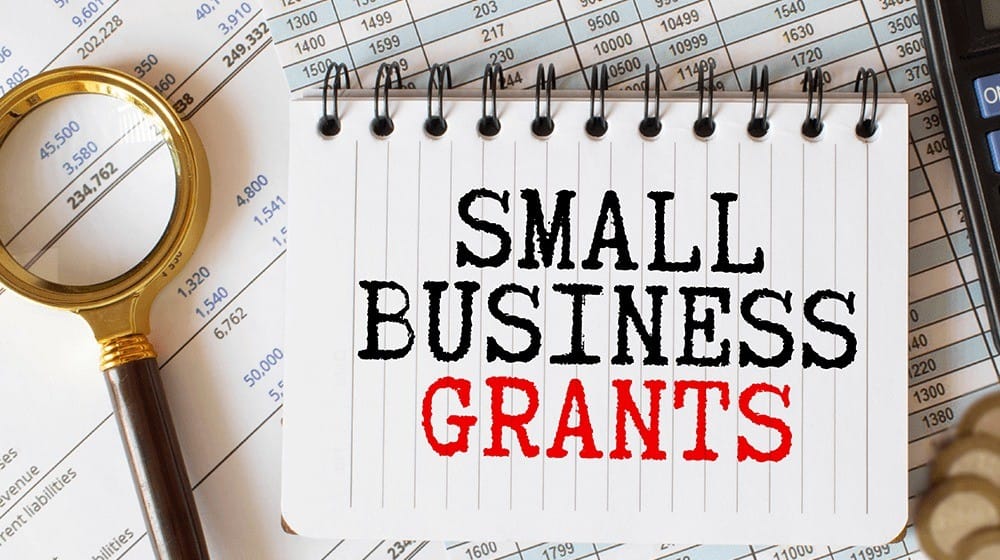Fedral Small Business Grants Start-Up: Who Is Eligible and How to Get Started
Introduction
Starting a small business can be both exciting and overwhelming, especially when it comes to securing the necessary funding. While many entrepreneurs turn to loans or private investors, federal grants offer a valuable alternative—providing funding that doesn’t need to be repaid. Fedral Small Business Grants start-ups are designed to support innovation, promote economic growth, and help underrepresented groups gain access to business opportunities. However, the process of finding and applying for these grants can seem complex, especially for first-time applicants. Understanding who qualifies, where to look, and how to craft a compelling application are essential steps toward success.
This guide will walk you through the key aspects of federal grants—from eligibility criteria to practical tips for applying—so you can take informed action toward funding your business dreams. Whether you’re launching a tech start-up, a local service, or a socially driven enterprise, there may be a grant opportunity waiting for you.
Understanding Federal Grants
Federal grants are financial awards given by government agencies to support specific projects, research, or initiatives that align with public policy goals. Unlike loans, grants do not require repayment, making them a highly sought-after funding option for small business start-ups. These grants aim to encourage innovation, enhance economic development, and foster opportunities for business growth. It’s important to note that grants are often competitive and have specific criteria, so understanding the process and knowing how to apply is crucial for success.
Benefits of Federal Grants for Start-Ups
Federal grants provide several key benefits for small businesses, especially those in their early stages. First and foremost, grants offer non-repayable funds, reducing the financial burden on business owners. They also serve as a credibility booster, showing potential investors and customers that your business has been vetted by a government entity. Additionally, receiving a federal grant can help with business development, allowing you to invest in resources, research, or expansion without the pressure of debt.
Types of Federal Grants Available
There are various types of federal grants designed to meet the needs of different business sectors. Some grants are aimed at innovation and research, such as those offered by the National Institutes of Health (NIH) or the Department of Energy (DOE). Others focus on helping minority or women-owned businesses, like those provided by the Small Business Administration (SBA). Additionally, grants are available for businesses in specific regions or industries, such as agriculture, technology, or rural development, to foster targeted growth in these areas.
Key Federal Agencies Offering Grants
Several federal agencies offer grants to small business start-ups, each with specific goals and focus areas. The Small Business Administration (SBA) is one of the most prominent sources, providing grants for small businesses and entrepreneurs in various sectors. The Department of Agriculture (USDA) offers grants for agricultural businesses and rural development. The National Institutes of Health (NIH) funds health-related start-ups and research. Other agencies like the Department of Energy (DOE) and National Science Foundation (NSF) focus on innovation, renewable energy, and technology-related enterprises.
Who Is Eligible for Federal Grants?
Eligibility for federal grants varies based on the type of grant and the goals of the funding agency. Generally, small business owners must be U.S. citizens or legal residents, and their business must be a for-profit entity. Certain grants have additional criteria, such as being a minority-owned, women-owned, or veteran-owned business. Start-ups in specific industries, such as technology, healthcare, or agriculture, may also have specialized eligibility requirements. Researching the specific eligibility guidelines for each grant is essential to determine if your business qualifies.
How to Search for Federal Grants
Finding federal grants requires knowing where to look and how to navigate available resources. Grants.gov is the primary portal for all federal grant opportunities, where you can search, apply, and track grants across various government agencies. Additionally, SAM.gov (System for Award Management) is essential for registering your business to receive federal funds. The SBA website also lists grants and funding opportunities specifically designed for small businesses. It’s important to regularly check these resources and set up notifications for new opportunities that match your business needs.
Steps to Prepare Before Applying
Before applying for a federal grant, it’s essential to ensure your business is properly prepared. First, you must register for a DUNS number, which is used to identify your business. You’ll also need to create an account on Grants.gov and SAM.gov. Having a detailed business plan and clear objectives for how you intend to use the grant funding will be crucial. Additionally, you may need to gather financial documents, proof of tax status, and any other paperwork that demonstrates your business’s legitimacy and readiness for growth.
Tips for Writing a Successful Grant Proposal
Writing a strong grant proposal is key to increasing your chances of securing funding. Start by carefully reading the grant guidelines to ensure your project aligns with the funder’s goals. Be clear and concise in describing your business, the specific problem you’re addressing, and how the grant will help solve it. Include measurable outcomes and demonstrate how you will manage and use the funds responsibly. Additionally, providing a solid budget and a timeline for implementation can help your proposal stand out.
Common Mistakes to Avoid in the Application Process
While applying for federal grants, there are several common mistakes to watch out for. One major error is failing to thoroughly read the grant guidelines, which can lead to disqualification if your application doesn’t meet specific criteria. Another mistake is submitting incomplete or inaccurate information, such as missing financial documents or vague project plans. Be sure to carefully proofread your application to avoid grammatical errors, and always follow formatting instructions exactly as outlined in the application. These small details can make a significant difference.
What Happens After You Apply?
Once your grant application is submitted, the review process begins. Federal agencies typically evaluate applications based on merit, feasibility, and alignment with their funding priorities. The timeline for review can vary depending on the grant program, but you may be notified within a few weeks or months. If your business is selected for funding, you will receive an official award notice detailing the amount and the terms of the grant. If your application is not selected, you can often request feedback to improve your future submissions.
Conclusion
Securing a federal grant for your small business start-up can be a game-changer, providing much-needed funding without the burden of repayment. By understanding the different types of grants, knowing how to find opportunities, and preparing a strong application, you can increase your chances of success. While the process can be competitive, careful planning, attention to detail, and persistence can help you navigate the application journey and move closer to realizing your entrepreneurial goals.
You Can Also Read: AWS Enters Into ‘Strategic Partnership’ with Saudi Arabia-Backed Humain
FAQS
Who is eligible for small business?
Who qualifies as a small business entity for tax concessions and deductions? The ATO defines a small business entity as one that: Has an aggregated annual turnover of less than $10 million (for most concessions) For certain concessions, has an aggregated annual turnover of less than $50 million.
How to get money to start a business?
Fund your business
- Determine how much funding you’ll need.
- Fund your business yourself with self-funding.
- Get venture capital from investors.
- Use crowdfunding to fund your business.
- Get a small business loan.
- Use Lender Match to find lenders who offer SBA-guaranteed loans.
- SBA investment programs.
What qualifies as a qualified small business?
Qualified small business (QSB) rules for eligibility
The company must be an active business that is incorporated as a U.S. C-corporation. The company must have had gross assets of $50 million or less at all times before and immediately after the equity was issued.
What are sources of funding?
A legitimate example of a source of funds can include anything where the money was obtained through legal means, such as: wages, bonuses, dividends, and other income from employment. pension payments. interest from personal savings. returns on investments.
What are qualified business assets?
Qualified Business Asset Investment (QBAI) is a 10 percent tax exemption for U.S. multinationals based on the value of buildings, machinery, or equipment.






